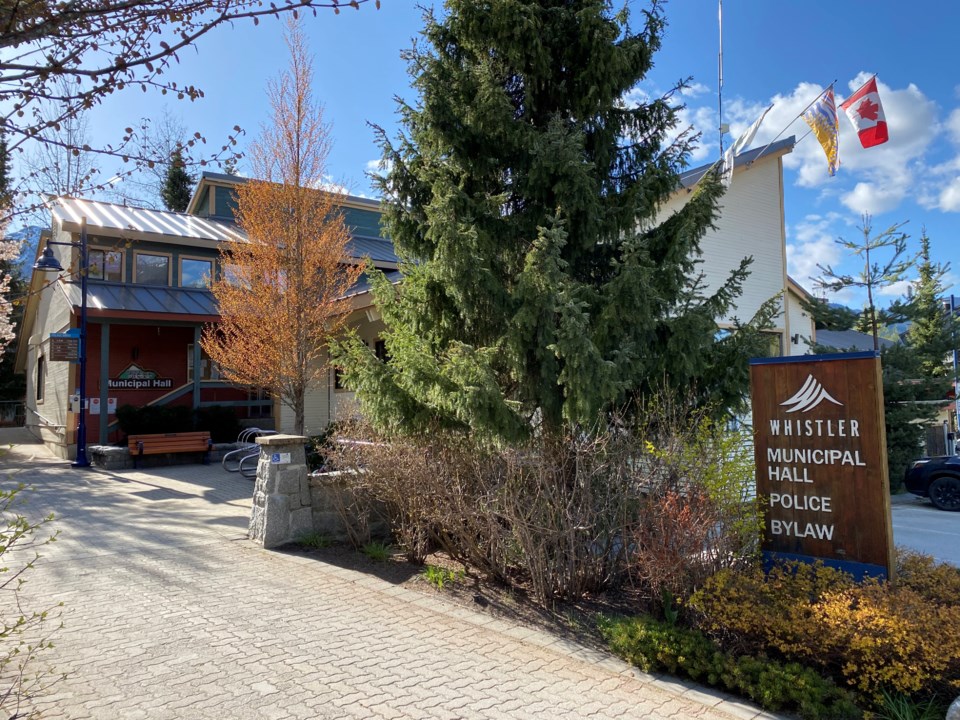The Resort Municipality of Whistler (RMOW) is busy trying to get the jump on the next budget, with a recently-completed early survey going before the committee of the whole on Sept. 24.
According to a staff report, the “budget prioritization survey” conducted in July and August this year saw increased engagement over the previous year, with 314 contributions made up of 239 survey responses and 75 poll responses helping inform staff of community priorities.
While the increase over the 2023 survey was noted (from only 228 last year), the level of engagement was less than outreach suggested it could have been. The promotion campaign for the survey ran for 40 days, with the Facebook portion garnering 29,520 impressions and 2,376 engagements.
The staff report played down the relative lack of community input, however, noting the survey was “one component of a multi-tiered engagement and communications effort underway to educate and encourage municipal budget participation.”
The report also notes the survey results are not statistically relevant, given participants were choosing to participate. The permanent population of Whistler was 13,982 people in 2021.
“However, the results of this survey are intended as a conversation starter for council and the survey itself is brought forward as a means of creating interest in the municipal budget process for the public,” the report said.
“It is hoped it will also serve as a gateway for further democratic participation for those who may not have participated in the past.”
While the numbers were low, the results still yielded insight into respondent priorities: “Housing remained the highest overall priority, followed by smart tourism, community engagement, and climate, which were essentially tied for second place,” reads the report.
Housing was selected by 53.8 per cent of all respondents as being the highest priority for council to tackle by a large margin, followed by climate action at 19.2 per cent.
Despite being the second-highest ranked priority, climate action was also selected by the most people as being the lowest priority: 35 per cent put it dead last in their rankings, compared to only 9.7 per cent who said housing wasn’t a priority.
On housing, respondents wanted the RMOW to put money to it as well, with 67.3 per cent saying they believe the municipality should invest more in enabling affordable housing.
On questions around putting more or less money towards issues, respondents were more united in wanting to spend more money than less: 54.3 per cent wanted more to go towards recreational facilities, and 50.6 per cent wanted more to go towards emergency preparedness.
On the other end, 38.3 per cent said there should be less money put towards parks planning and projects (as separate items), 23.8 per cent wanted less towards climate response, and 18.4 per cent of those responding to an RMOW survey believed the RMOW should spend less on communications and engagement.
Overall, respondents indicated they were satisfied with the level of funding across services.
The report noted respondents were asked to rank options in balancing the budget to hammer home the trade-off nature of spending more on some items and then having less for others. Most opted to postpone projects around new amenities, followed by an option to offer the same services but scaled back, and then by an option to increase business property taxes. Of all options, postponing repairs to existing infrastructure was the least preferred option to balance the budget.
According to the staff summary of open-ended questions that allowed respondents to write in answers, there was a “general satisfaction with core services,” together with concerns about overcrowding, requests for a local focus, “a need for increased transparency and accountability” on behalf of the RMOW, more affordable housing, more transit, and concerns about tax increases.
Beyond the presentation on the early budget engagement, there remains a long process of bureaucratic bean-counting, public engagement and council decisions to come. The RMOW will host a ‘”coffee with council” event focused on the budget on Oct. 10, giving councillors an opportunity to hear from residents on their budget thoughts.
A budget information night will not happen until November, while related bylaw readings will take place in the new year.




